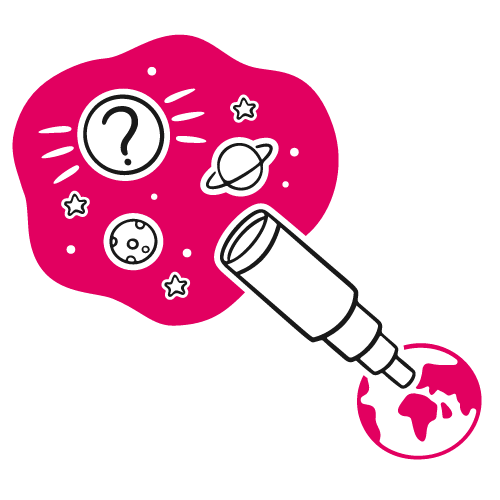Interstellar travel captures the imaginations and intellects of University of Ottawa students in an Experience Ventures hackathon
Seyed Ibrahim Hosseini has his feet on the ground, but his head is in the clouds. In a good way.
The 21-year-old is working on two degrees at the University of Ottawa: a bachelor’s of physics and a bachelor’s of electrical engineering (honours). That would be the feet-on-the-ground part. As for the head-in-the-clouds part, he recently took part in a two-day hackathon that tackled the problem of interstellar travel.
The hackathon was an Experience Ventures event to challenge students and give them a practical grounding in entrepreneurial thinking. The 40 students who participated in the event received an honorarium and were able to hone skills like problem solving, collaboration, and risk management.
Creating opportunities for students to develop these types of entrepreneurial thinking skills is part of what sets Experience Ventures apart from other future-ready programs. This initiative, powered by the Hunter Hub for Entrepreneurial Thinking at the University of Calgary, works to provide students with a chance to take the entrepreneurial thinking skills they develop and apply them to real-world challenges.
The University of Ottawa’s Entrepreneurship Hub organized the bilingual hackathon in collaboration with MDA, the space technology company. MDA hosted the event at its offices in Kanata North, Canada’s largest tech park. The company went above and beyond as the hackathon host. It brought in breakfast and lunch and even gave students a chance to put on VR headsets to get a sense of life on the International Space Station
Kyle Thomas says it was an eye-opening experience for both the French and English students. As the Entrepreneurship Programs Coordinator at the Entrepreneurship Hub, Thomas oversaw the hackathon.
“There were students who were interested in space and wanted to participate,” he says. “But there were also students who had never considered this as an opportunity.”
After a quick introduction from the Canadian Space Agency, the teams tackled the problem statement set by MDA. The planet Kepler-22b has features similar to Earth. One hundred astronauts have been sent up to start a colony. What’s the best way to go about it?
Hosseini teamed up with four engineering friends and began contemplating issues like how to power the colony and supply the colonists with food and water. They also considered interpersonal politics. “These 100 people would all be experts in their fields, so we thought about how they could best share their expertise without causing problems,” Hosseini says. In other words, how does everyone get heard and how does the colony avoid bruised feelings?
Other teams considered things like the ideal rate at which the colony should grow and what programs could be instituted to ensure the colonists’ mental health.
All the teams made a 10-minute presentation to a panel of judges who asked questions, offered feedback, and determined the winners. And while Hosseini’s team was not victorious, he made good use of his time with the team from MDA. “I was able to chat with MDA employees and ask them about the projects they were working on,” he says.
Hosseini seems to have made a good impression. He recently interviewed for a summer internship at MDA. It’s a perfect example of the connections that Experience Ventures seeks to make. It might also be the start of a career that takes off like a rocket.
